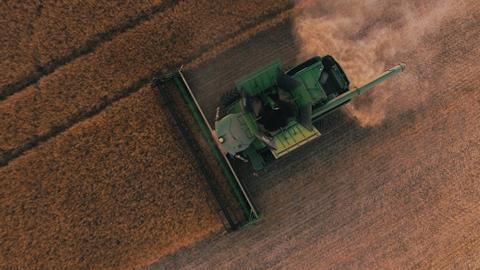Food shortages, mass migration, contests for water. This morning Boris Johnson laid out some of the stark consequences if world leaders fail to agree to cut emissions at the COP26 summit in Glasgow. He placed the odds of success at six out of 10.
The UK wants “hard, sharp deliverables”, he said, such as reducing coal use, planting millions of trees, and getting the “cash the world needs to finance green technology”.
Yet as many have pointed out, there is one glaring omission in the prime minister’s priorities: food.
“There is growing recognition of the huge positive and negative impacts food and farming can have, but these aren’t reflected at COP26, where food barely features,” wrote Dan Crossley, executive director of the Food Ethics Council, in The Grocer last month.
This is despite calls for food systems to “play a defining role” in the climate talks, without which COP26 is “unlikely to achieve its aims”, according to Agnes Kalibata, UN Food Systems Summit special envoy, writing in The National.
In the UK, food and drink accounts for a third of the country’s greenhouse gas emissions, while emissions from the global food sector alone are currently putting the Paris Agreement targets out of reach, even if all other sources of emissions were halted.
If this is to change, a fundamental reset in mindsets is required. For decades, food production’s measure of success has been increasing yields – lower prices, more food from less land in as little time as possible. The results have been devastating for both climate and biodiversity.
This ethos has furthermore failed to deliver nutrition to many of the most vulnerable parts of society. The number of people affected by hunger has increased steadily since 2014 across the world and is expected to grow by a further 60 million in the next five years, according to the UN.
The obsession with high yield, low prices must end – not just on farms but throughout the entire system. We must not only consider what kind of system we want government subsidies to reward, but what the market at large is rewarding. How can supermarkets, processors and manufacturers better incentivise sustainable food production throughout the supply chain?
“We need to move beyond this productivist approach and to a more holistic, nutrition-sensitive and nature positive approach,” says Marci Baranski, the UN’s programme manager for climate-smart rice projects. “We must bring in other values like our social values, our environmental values, and put those on an equal playing field with some of the economic costs of agriculture.”
So far this has failed to materialise. COP26 gives the perfect opportunity for change.




















No comments yet